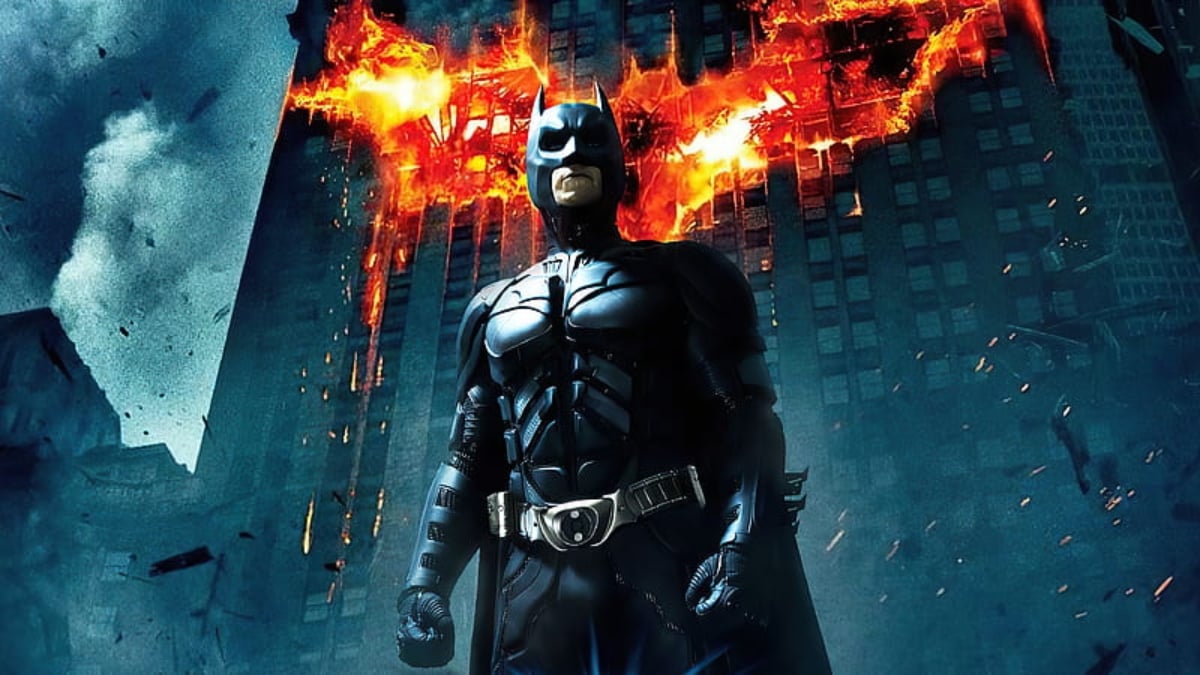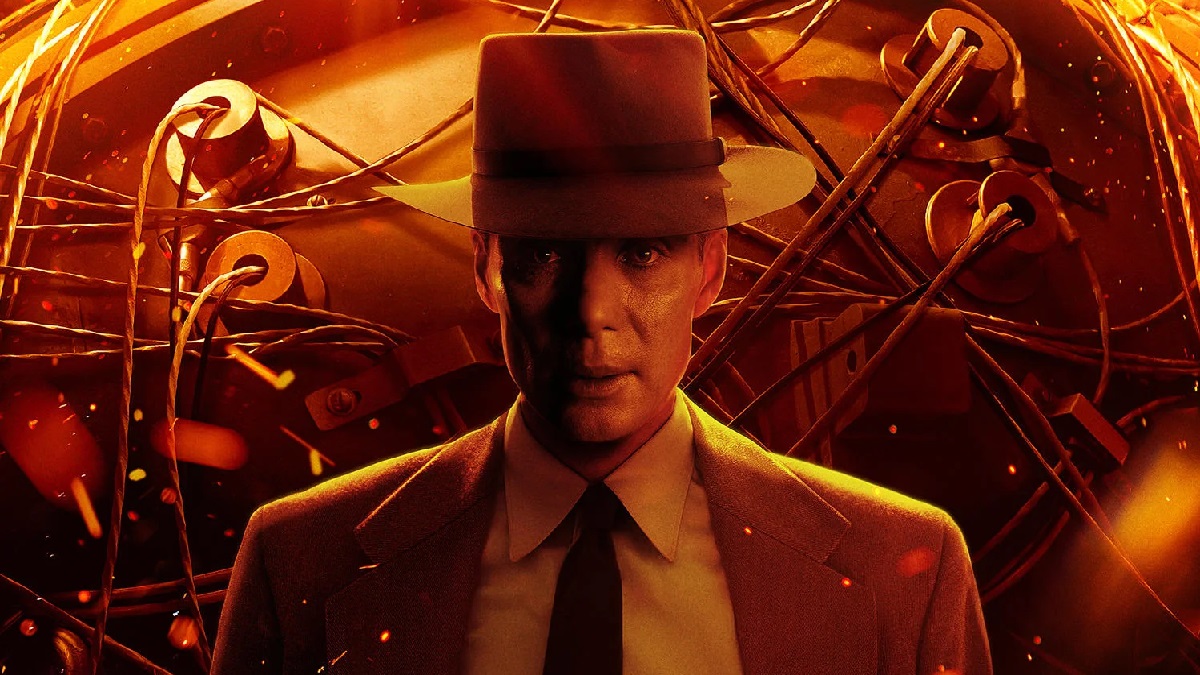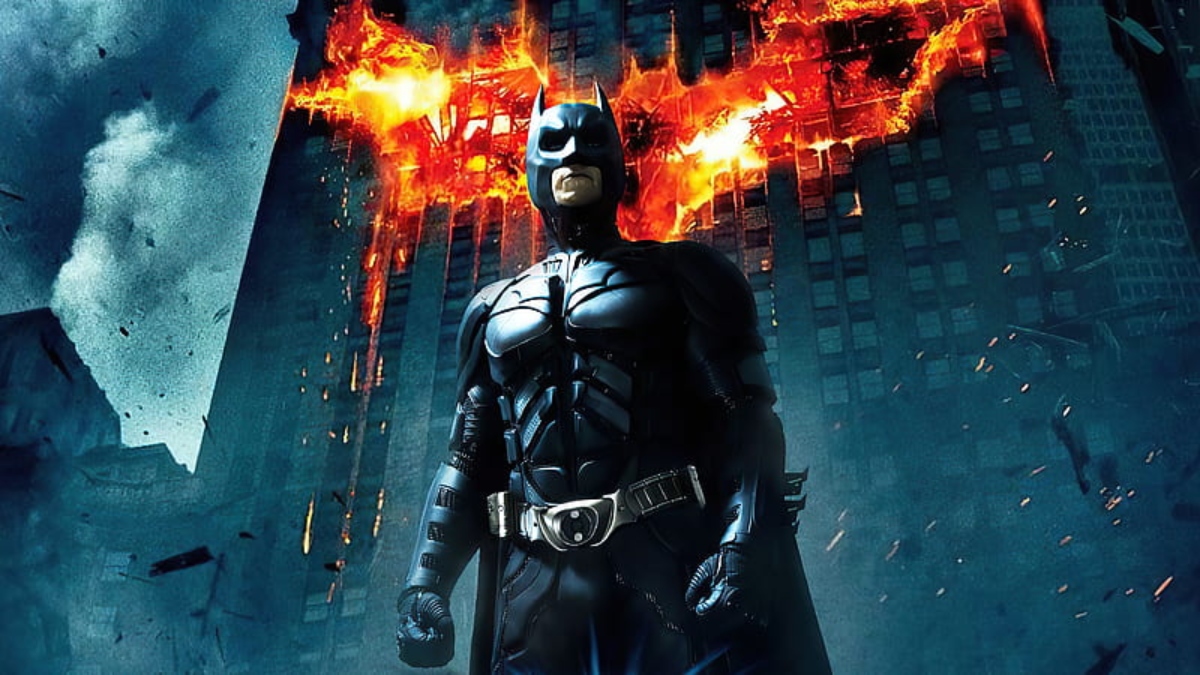The 2008 release of The Dark Knight was a transformative moment in filmmaking due to director Christopher Nolan‘s groundbreaking use of IMAX. The filmmaker’s innovative approach enriched the cinematic experience for moviegoers and became the cornerstone for a new wave of movies to delve into the immersive capabilities of large formats. The upcoming release of Nolan’s historical drama, Oppenheimer, is a reminder of how his commitment to IMAX has influenced the film industry, which, in turn, has secured a lucrative deal for the film upon its theatrical release on July 21, 2023.
Nolan’s pioneering use of IMAX in ‘The Dark Knight’

Nolan’s adoption of IMAX cameras for The Dark Knight was a game-changer as it created the allure of a spectacle to draw moviegoers to the cinema for a deliciously exclusive experience. The move added value as an additional income stream was possible for films that used the format.
Recalling his rationale at the time, Nolan told Entertainment Weekly:
“I think I always believed that if we won, if we succeeded, that would enable more filmmakers to carry on working that way and that would go some way to stop the electronics companies and studios from chipping away at the technical way in which myself and a lot of filmmakers want to keep working. And it didn’t make a damn bit of difference.”
Though Nolan’s noble goal of preserving the art of filmmaking from the onslaught of other new technologies may have failed, it created a niche market that would enhance the cinematic experience for generations of film lovers after The Dark Knight‘s release.
Unwavering commitment

Nolan is a prominent advocate for analog filmmaking who has spent much of his career emphasizing his preference for shooting on celluloid film over digital video. In his view, using higher-quality, larger-format film stock creates a superior cinematic experience and is more cost-effective. Naturally, this makes Nolan stick out like a sore thumb in the digital era, where such technologies dominate filmmaking. He remains adamant that his conservative approach allows for more organic and instinctual craftsmanship. Quentin Tarantino and Paul Thomas Anderson recognize the value and significance of Nolan’s artistic vision.
When asked by The Directors Guild of America to explain his preference for IMAX over smaller film formats, Nolan became lyrical:
“IMAX has three times the negative area of [smaller formats]. It’s such a leap up in terms of quality that if you’re working on a film that’s such a large-scale production you can embrace the more cumbersome technology, and allow for it and build it into your production process, then what you get in terms of quality when you’re shooting is pretty extraordinary. For The Dark Knight Rises, we were on Wall Street with a thousand extras, and you can see everybody’s face in the frame. In some ways, I feel it takes me back almost to the silent film era when they had those huge cameras. Trying to do things in more of a tableau fashion, it changes the way I direct a film, it changes the way I block the camera movement because of the size of the thing. The resulting image has so much power that you don’t need to cut in the same way, you can frame the shot slightly differently, [and] you wind up with a slightly different feel.”
Nolan has remained consistently vocal about his devotion to the precision of IMAX filmmaking and his delight in how it challenges him as a director.
Oppenheimer

Because of Nolan’s unshakable loyalty to IMAX filmmaking, Universal Pictures, and the IMAX Corporation have sealed an audacious deal for Nolan’s upcoming movie. Oppenheimer will captivate cinephiles exclusively on all 401 of IMAX’s screens across North America, making it an unprecedented event during the highly anticipated peak summer season. Moreover, Oppenheimer will run for an astonishing three weeks compared to the usual two-week period granted to directors who use IMAX cameras.
Nolan’s IMAX powerplay is poised to put the box office in a chokehold and leave competitors like Barbie and Mission: Impossible – Dead Reckoning Part One in the dust.
Past and future
The long shadow of The Dark Knight has influenced all modern superhero movies and remains a revolutionary moment in cinema. It was the harbinger of the use of IMAX cameras in feature films. Through his consistent use of IMAX technology, Nolan carved a niche for traditional moviemaking that enchanted audiences and satisfied film purists.
In addition to his unfaltering commitment to the IMAX format, Nolan remains the first filmmaker to create a $1 billion superhero movie. The Dark Knight proved to the entertainment that creating high-quality content for comic book fans could be creatively gratifying and immensely profitable. It’s no wonder Oppenheimer is receiving the red-carpet treatment considering Nolan’s previous successes.
Whether Oppenheimer will have the same paradigm-shifting impact on biopics as The Dark Knight had on superhero movies is yet to be determined. One thing is true: Christopher Nolan is one of the few filmmakers who can authentically capture the multifaceted nature of the human condition. Concerning the story of Oppenheimer, a man who wielded more power than anyone in history before him, no other creative mind can do his story justice on the silver screen.

